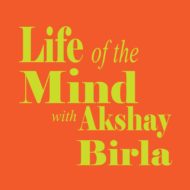Kathryn Hume is a technologist and philosopher. She’s the VP of Product at integrate.ai, Venture Partner at ffVC, and writer at Quam Proxime. If you’re nerdy enough, she’ll talk about her PhD research on the 17th and 18th century version of “fake it till you make it” which she does here (score!). In this episode we talk about 17th century French philosophy, artificial intelligence (AI) and its implications for ethics and public policy, the role of the technologist, and more.
I thought I found the most helpful and honest framing of AI I have heard so far:
The definition of AI is more psychology than it is a technical classification term, and it’s whatever computers can’t do until they can.
If you think everyone is always talking about AI, you’re not the only one:
Some marketing dude somewhere decided that this term [AI] is hot now. Startups that used to say that they are into predictive analytics or even big data five years back are now rebranded as AI.
But seriously, consider the implications for public policy and ethics where decisions on life and death are made the same way as Amazon recommendations:
What’s the worst thing that can happen if somebody gets recommended a plunger instead of Moby Dick on Amazon?
And also businesses going all-in on data scientists:
I find there’s too much fetishism right now around the super-fancy super-expensive PhD research-level work that isn’t the best fit for companies hiring folks: it might not lead to really great results.
Side Notes: First, I was so intrigued that I dug out her Stanford dissertation The Performance of Analysis: Habit and Conversion in Seventeenth-Century French Thought (link). Second, in case you were wondering (I was), moral aphorism = 17th century version of a Tweet.
Podcast: Play in new window | Download
Subscribe: RSS
